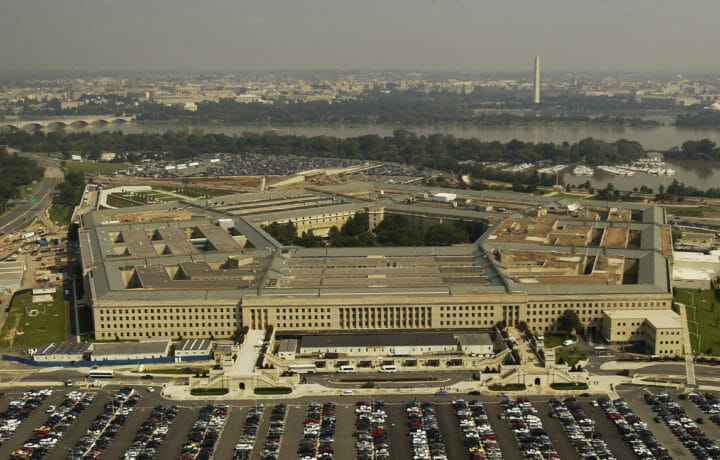In April, lawmakers introduced a bill that called for the creation of a new “Center of Excellence” – this one focused on the Department of Defense’s (DoD’s) efforts to develop and employ quantum information science. It would be the U.S. government’s first Center of Excellence designed to support military-specific quantum computing applications.
As previously reported for ClearanceJobs, quantum technology has remained a “buzzword” in recent years, but its potential can’t be overstated. It could usher in a major leap forward in computing power – which is why so much emphasis is being placed on its development.
It promises to increase communication speed, with the ability to encrypt and decrypt information at unparalleled rates. That could make existing protections obsolete, and experts have suggested the technology could make the difference between winning and losing physical, economic, and cyber wars.
The U.S. military is already engaged in a quantum race to develop the technology, and much like the space race, it isn’t one that some in Washington believe it can afford to lose.
At issue is that China is currently outpacing the Pentagon in terms of investment in quantum technology. Beijing has dedicated more than $15 billion over the next five years, or $3 billion annually, while yearly the U.S. DoD has invested just $700 million. However, the U.S. tech sector is also investing heavily in the technology.
IBM, Google, and Lockheed Martin are among the companies now spending heavily on research and development towards next-generation quantum computing.
More Than Just Quantum Computing
The newly proposed Quantum Center of Excellence would be focused on much more than the computing aspect, as it is part of the larger quantum information science (QIS), which as DefenseScoop reported ” broadly applies to the laws of physics and complex phenomena happening at atomic and subatomic levels to store, transmit, manipulate, compute or measure information.”
U.S. lawmakers on the House Armed Services Subcommittee on Cyber Innovative Technologies, and Information Systems (CITI) have been pushing for the creation of the new one-stop, military-focused quantum hub.
The bill wouldn’t push the Pentagon to match China’s investment, as the aforementioned companies in the private sector are already heavily involved, but it would help make this a top priority for the DoD.
“Quantum’s impact on our national security will be considerable, and we must take immediate steps to ensure the United States is the first nation to reach quantum advantage. This bill will ensure the Department of Defense, led by the incredible work at [The U.S. Air Force Rome Laboratory in New York] is able to outpace our adversaries and rapidly develop and transition quantum technologies to our service members,” Rep. Elise Stefanik (R-N.Y.) said in a statement after the introduction of the bill.
New Center of Excellence’s Responsibilities
The lawmakers have already laid out some of the primary responsibilities for the proposed Quantum Center of Excellence. It would help accelerate the transition of advanced quantum and quantum hybrid computing technology from the research-and-development phase into operational use, and facilitate quantum computing workforce development.
The future center could further conduct outreach to enhance government, industry, and academia’s understanding of national security-related use cases for quantum computing and quantum hybrid technology and operational challenges faced by DoD that may be addressed using such technology, while it would prototype quantum computing and quantum hybrid applications, and further undertake efforts to advance the technology readiness levels of quantum computing.
The center could also carry out other activities relating to quantum computing as the secretary of defense determines appropriate.
The Centers of Excellence Understood
The concept of the Center of Excellent is a team, shared facility, or entity that provides the leadership, as well as best practices, research, support, and/or training for a focus area.
The U.S. Army already maintains numerous CoEs, which are focused on such diverse topics as acquisition, aviation, human resources, medical, NCO leadership, and even cyber. In addition, last year the Pentagon established four new research centers of excellence at minority-serving institutions of higher education, as part of its Historically Black Colleges and Universities and Minority-serving Institutions Research and Education Program.
Other U.S. agencies also operate CoEs, which include those focused on IT and cyber. To date, the proposed Pentagon CoE is the only one directed towards the field of QIS.




